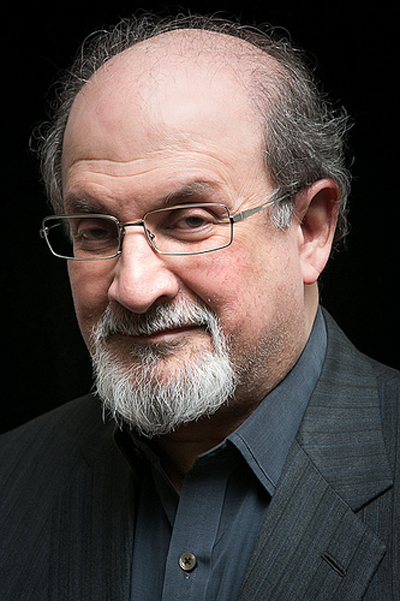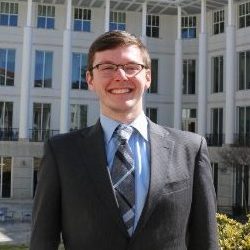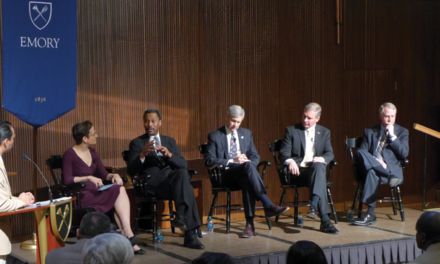
Author and University Distinguished Professor Salman Rushdie gave a lecture Sunday in Glenn Memorial Auditorium and spoke at a panel during the fifth Annual India Summit Monday as part of his annual visit.
Rushdie’s role as University Distinguished professor allows him to engage with the community by giving public lectures and teaching courses in subjects ranging from Creative Writing to Film and Media Studies.
In early 2010, the University’s Manuscript, Archives and Rare Book Library (MARBL) opened a permanent exhibition containing an archive of Rushdie’s work, including notes, files, journals and manuscripts spanning 1947-2008.
Rushdie said that he enjoyed his unique relationship with Emory, both inside and outside the classroom, according to a March 7, 2012 Emory Report article.
“It’s always interesting to be in touch with young minds,” Rushdie told the Emory Report. “I meet new people for different kinds of conversations, and it’s fun.”
During his hour-long lecture, titled “Wonder Tales,” Rushdie spoke on the origins of the so-called “wonder tales” of the Eastern tradition – the Mahabharata, Ramayana and Arabian Nights stories among others – as a metaphorical journey through which both society and writers such as himself gain a greater understanding of experiencing the world around them.
In addition, Rushdie closed out the first day of the India Summit Monday by participating in an interview panel with Paul Courtright, professor of Religion and Asian Studies, and discussed the work of the global, cultural and political influences of current and emerging Indian writers.
A Wonder Tale
College Dean Robin Forman introduced Rushdie as a man who “quite literally needs no introduction” as a recipient of numerous awards, honors and distinctions, yet is most notable to Emory as a teacher.
Forman noted that elements of seriousness and depth coupled with the breadth of an underlying spirit of generosity have been hallmark features of Rushdie’s eight years of teaching at Emory. A “thoughtful, energetic and sometimes playful” instructor, Rushdie has engaged Emory students from a variety of educational, social and literary backgrounds, Forman said.
Forman closed his introduction with a nod toward the theme of the lecture and the interconnectedness of society via a quote from Rushdie: “Stories of anywhere are also the stories of everywhere else.”
Rushdie started by joking about the true origins of the Paul Simon song “Bridge Over Troubled Water,” and a joke about the difference between Simon’s lecture and his own.
“I understand that when Paul Simon was talking to you in this room, he sang,” Rushdie quipped. “I am not going to sing. You don’t want to hear me sing.”
Rushdie then read a paragraph from his autobiography Joseph Anton to set the stage for the history and importance of the “wonder tales” in his own life.
“To grow up steeped in these tellings [of the wonder tales] was to learn two unforgettable lessons,” Rushdie read. “One: stories were not true. Secondly, they all belonged to him, just as they belonged to his father and to everyone else.”
This realization that man is a “storytelling animal,” Rushdie said, is key to understanding the importance of storytelling in society.
“The act of falling in love with stories awakens imagination, something in us, which will nourish us all our lives,” Rushdie said.
Rushdie added that the same act of falling in love with a book plays an important role in shaping how we understand and see the world. Continuing the narrative of his childhood love of literature, Rushdie shared that the wonder he felt growing up came from the knowledge that the stories he read were imaginable and still can have truth.
Diving in to his message of the “wonder tales,” Rushdie said that the main point of these stories appealed to the masses.
“These stories contain lots of sex, much mischief, monsters and genies,” Rushdie said. “If you enjoy music, jokes and pleasure then these are tales for you.”
The wonder tales, Rushdie said, originated in India and made their way through world traditions and literature as part of a “great migration” that demonstrates the important ties between story and society. After exploring the specifics of the wonder tale One Thousand and One Nights as an example of what Rushdie called “a Statue of Liberty built not of metal but of words” meant to serve as a guide to readers, Rushdie offered anecdotes of seemingly moral tales lacking happy endings and offered his own guide to morality.
“Don’t push your f–king luck,” Rushdie said as the audience erupted in laughter.
To close his lecture, Rushdie offered advice to those who wish to write now and in the future.
“Some would say when it comes to fiction to write what you know,” Rushdie said. “I say, unless what you know is interesting, simply write what you don’t know.”
India Summit Panel
Courtright opened the interview by asking Rushdie to explore the literary nature of the English language.
“I myself was not convinced English would remain the literary language,” Rushdie said. “I thought it quite possible that Indian writers would lose interest in it.”
When he first began writing, there was what Rushdie called a “barren wasteland” of English writing in India, followed by an explosive growth. Echoing his sentiments from Sunday’s lecture, Rushdie called attention to the significance attached to place – more specifically the freedom to explore place within writing – as an important factor in Indian writing.
“Western writers always gave themselves the liberty to write about wherever,” Rushdie said. “Now, India is attempting to join the party.”
One concern Rushdie has for the future of Indian writers lies in the lack of perceived concern or interest from the general population coupled with attempts to stifle and control what is published.
“It’s a ridiculous thing, to ban a book,” Rushdie said. “In today’s world, you can download anything, anywhere at any time.”
The second half of the panel had Rushdie answer audience questions about politics, culture and religion.
– By Stephen Fowler
Photo courtesy of Flickr Creative Commons
Stephen Fowler 16C is the political reporter at Georgia Public Broadcasting, the statewide NPR affiliate in Georgia. He graduated from Emory with a degree in Interdisciplinary Studies and covered the central administration and Greek Life for the Wheel before serving as assistant news editor, Emory Life editor and the Executive Digital Editor from 2015-16.






